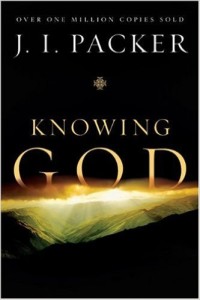“Give thanks to the Lord, for He is good.”
Psalm 136:1
The salvation of God is reason to celebrate Thanksgiving!
Today I’m thanking God for salvation – His salvation.
Allow me to ask you a personal question.
Do you know what your name means?
Go ahead and “google” your first name right now and see if you can discover the meaning of your name. Search on “meaning of YourFirstName.” For me, that will look like this: “meaning of Wayne.” (The quotation marks are optional.)
Ready? Go for it!
How did it go? Did find out the meaning of your name?
I did. One website says my name comes from an occupational surname meaning “wagon maker.”
SOURCE: http://www.behindthename.com/name/wayne
So I’m a wagon maker!
I know for a fact that my becoming a wagon maker was the furthest thing from my parents’ mind when they named me. I was born in 1957. John Wayne was a popular actor then, so my parents gave me this name because they liked him.
People rarely give names these days because of the meaning of the name. We pick a name because it sounds nice or because someone else in the family has that name. Or we name our child after someone famous.
In Bible times that wasn’t the case. 2000 years ago names had great significance, and names were picked because of the meaning behind the word.
Do you know the meaning of the name “Jesus”? The Bible tells us. In Matthew 1:21, the angel said to Joseph, “You are to give him the name Jesus, because he will save his people from their sins.” The name Jesus means “The Lord saves” or simply “Savior.”
Jesus’ name communicates the purpose of His incarnation. He came to save us. Is this not the clear teaching of Scripture?
John writes, “The Father sent the Son to be the Savior of the world” (1 John 4:14)
Paul says, “Here is a trustworthy saying that deserves full acceptance: Christ Jesus came into the world to save sinners.” (1 Timothy 1:15)
And Jesus Himself proclaimed, “The Son of Man came to seek and to save the lost.” (Luke 19:10)
There are many passages in the Bible that explain salvation. One of the Bible’s clearest verses about Scripture as the source of the salvation message is 2 Timothy 3:15.
“From infancy you have known the Holy Scriptures, which are able to make you wise for salvation through faith in Christ Jesus.” The Bible gives us the wisdom we need to understand, receive and apply God’s message of salvation, the gospel of Jesus.
The word “salvation” is a rich word, filled with significance. It simply means deliverance or rescue, and can be used of both physical salvation (such as being healed of an illness) and spiritual salvation (being saved from sin and all its devastating consequences, including the wrath of God poured out on Judgment Day and eternal punishment in hell).
My favorite way to explain salvation is to use a threefold outline that sees salvation as a past event, a present experience, and a future hope. This approach assumes that you are a Christian and you are looking at your salvation from the perspective of time: past, present and future.
- Salvation is a past event known as “justification.”
The Bible says you already have been saved. It’s a done deal. It happened on the day God granted you faith and repentance. Some Christians can remember the exact day and time. Other believers do not know the specific date, and that’s OK, too.
The point is this: We have been saved from the penalty of sin. God has rescued us from His wrath. He has delivered us from hell. Praise God for that! Because the Father poured out His wrath on the Son, His justice has been satisfied and His anger has been spent – on Jesus, who died in our place and took upon Himself the punishment we deserve.
The Bible describes our salvation from sin with the word “justification,” a legal term that comes from the courtroom. It means to “declare righteous.” God the Judge pronounces the guilty defendant righteous because the righteousness of Christ has been credited to his account.
Many passages teach that salvation is a past event. Note the tense of each verb in the following verses.
“Therefore, since we have been justified through faith, we have peace with God through our Lord Jesus Christ.” (Romans 5:1)
“For it is by grace you have been saved, through faith.” (Ephesians 2:8)
“But when the kindness and love of God our Savior appeared, he saved us.” (Titus 3:4)
- Salvation is a present experience known as “sanctification.”
The Bible also says that we are being saved (every day) from the power of sin. Even though God has forgiven our sins and wiped the slate clean through justification, we still have a sin nature and must fight a daily battle against the evil within.
From the day we are born again to the day we die, we need God to save us from the power of sin – everything from lust, anger and greed to lying, stealing and fornication. Temptation will continue to rear its ugly head at us, and the goal of Christian living is to live a life of increasing Christ-likeness and decreasing impurity. This is called “sanctification,” another word packed with meaning.
“Sanctification” simply means “holiness.” It means to be unique, to be set apart — from sin and unto God. Of course, only God is perfectly sanctified and holy. But we are to obtain a measure of his holiness through the lifelong journey of sanctification. God tells us, in no uncertain terms, to “Be holy, because I am holy” (1 Peter 1:16). “Just as he who called you is holy, so be holy in all you do” (1 Peter 1:15).
Note the following passages that teach salvation is a present experience that occurs daily.
“By one sacrifice he has made perfect forever those who are being made holy.” (Hebrews 10:14). Note that this verse mentions both justification (God has made us perfect by declaring us righteous in His sight because of Jesus) and sanctification (we are being made holy by becoming more and more like Jesus).
“By this gospel you are being saved, if you hold firmly to the word I preached to you.” (1 Corinthians 15:2)
“For we are to God the aroma of Christ among those who are being saved and those who are perishing.” (2 Corinthians 2:15)
- Salvation is a future hope known as “glorification.”
One day we will die and be transported immediately into the presence of Christ. “To be away from the body and at home with the Lord” (2 Corinthians 5:8). Oh what a wonderful day that will be!
This is our hope – to spend eternity with King Jesus. Paul describes the incredible glory of heaven in one of the Bible’s most precious passages:
“And we know that in all things God works for the good of those who love him, who have been called according to his purpose. For those God foreknew he also predestined to be conformed to the image of his Son, that he might be the firstborn among many brothers and sisters. And those he predestined, he also called; those he called, he also justified; those he justified, he also glorified.” (Romans 8:28-30)
Interestingly, Paul uses the past tense to describe our future hope of glorification. “Those he justified, he also glorified.” Because our inheritance in heaven is based on the promises of God, we can speak of it as if it has already happened!
Other passages use the future tense to describe the final phase of our salvation:
“Since we have now been justified by his blood, how much more shall we be saved from God’s wrath through him!” (Romans 5:9)
“We believe that we will be saved through the grace of the Lord Jesus Christ.” (Acts 15:11).
To summarize . . .
Salvation is a past event. “God saved me.” I have been saved from the penalty of sin. That’s justification.
Salvation is a present experience. “God is saving me.” I am being saved from the power of sin. That’s sanctification.
Salvation is a future hope. “God will save me.” I will be saved from the presence of sin. That’s glorification.
And how do we know all this? Because God has revealed the gospel of salvation in His Word. Without the Scriptures, we would be clueless regarding our lost condition and God’s remedy for it.
We must read and study the Bible so we can know, understand and apply the message of God’s grace in Christ Jesus.
Think about this: What would the world be like today if there was no Bible? Fortunately, God has not left us in the dark about our sinful condition and His solution to our #1 problem. Not only did He send Jesus to provide salvation from sin, He then miraculously guided His closest followers to record the life, death, resurrection and teachings of Jesus in the four gospels of Matthew, Mark, Luke and John.
After Jesus ascended to heaven and the early church began to grow, God then directed Luke to write the book of Acts, so we would know how the message of salvation was proclaimed in “Jerusalem, and in all Judea and Samaria, and to the ends of the earth” (Acts 1:8).
During these formative years of the church’s existence, God also led Paul, John, Peter, James and Jude to write letters to the new Christian communities springing up throughout the Roman Empire. God saw fit to preserve some of these “epistles” so that by the end of the first century, there were 27 “books” (4 gospels + Acts + 22 letters) that became our New Testament.
Oh, may we never take the Word of God for granted! Many have died for this book. When you pick up your Bible, you are holding the world’s most precious possession in your hand – the inspired, infallible, authoritative Word of God.
This is no ordinary book. It contains the words of eternal life. Without it, we are lost forever. By reading this book, God can teach us how to find salvation from the penalty, power and presence of sin through His Son Jesus Christ.
For this wonderful gift of salvation, we give thanks to God today and every day!
NOTE: This post is an except from the book, Top 10 Reasons to Read the Bible Today, by Wayne Davies.
ALSO NOTE: For the other posts in this Thanksgiving acrostic, visit Click Here.
To date, there are 6 posts in this series, one for each letter of the word T-H-A-N-K-S.










